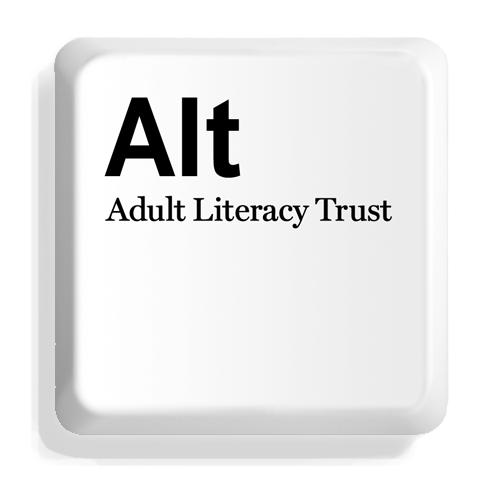Our Beneficiaries
It is estimated that more than 7 million adults in England are 'functionally illiterate', lacking basic skills beyond a primary school level or below. The reasons for this are many, including social exclusion, poverty, lack of schooling, difficult living conditions, dyslexia, learning disabilities/differences and a number of other critical factors.
ALT seeks to combat the myriad challenges confronted by adults with poor literacy, of daily living and employment tasks that require reading skills beyond a basic level. Adults who seek instruction will have a wide range of goals and interests: to find work, read the newspaper, navigate everyday tasks such as shopping or accessing public transport, manage their personal finances or read to their children, among others. Our support builds on what adults are already learning in a more formal teaching setting, and focus on the things they need to learn.
Although the problem is generalised, low literacy is especially acute among adults in the DE Social Grade (using the UK Office for National Statistics categorisation) of semi-skilled and unskilled manual occupations, unemployed and lowest grade occupations. It is also more pronounced in the BAME community than in the general population. These are the communities ALT targets as priorities.
Not least, the impacts of the pandemic and cost-of-living crisis are pushing more and more people into poverty. Those with poor reading skills are particularly at risk. Communities experiencing marginalisation are amongst the worst affected, including Black and ethnic minorities, those from lower socioeconomic backgrounds, the homeless and ex-offenders.
Working in areas of disadvantage
Given that low adult literacy levels both cause and result from increased indicators of intersectional disadvantage – including poverty, learning disabilities, unemployment and poor health – we are specifically working with partners and in local authority areas that have high levels of disadvantage amongst their populations.
Our programmes are currently taking place in the London boroughs of Hackney, Tower Hamlets, Southwark and Westminster, which have higher than UK and London averages across several key indicators for poverty, including out-of-work benefit claimants, children and adults living below the national poverty line, employment inequity and those living in insecure housing (Trust for London, 2022). The overwhelming majority of our beneficiaries are from minority ethnic communities, and more than 80% are female.
Join us in
ending poor literacy amongst adults
Helping an adult to improve their skills and confidence to read can have profound and lasting benefits, by improving their ability to find and retain decent-paying jobs, better navigate everyday tasks such as shopping or accessing public transport, manage their personal finances, and participate in their children's learning.




